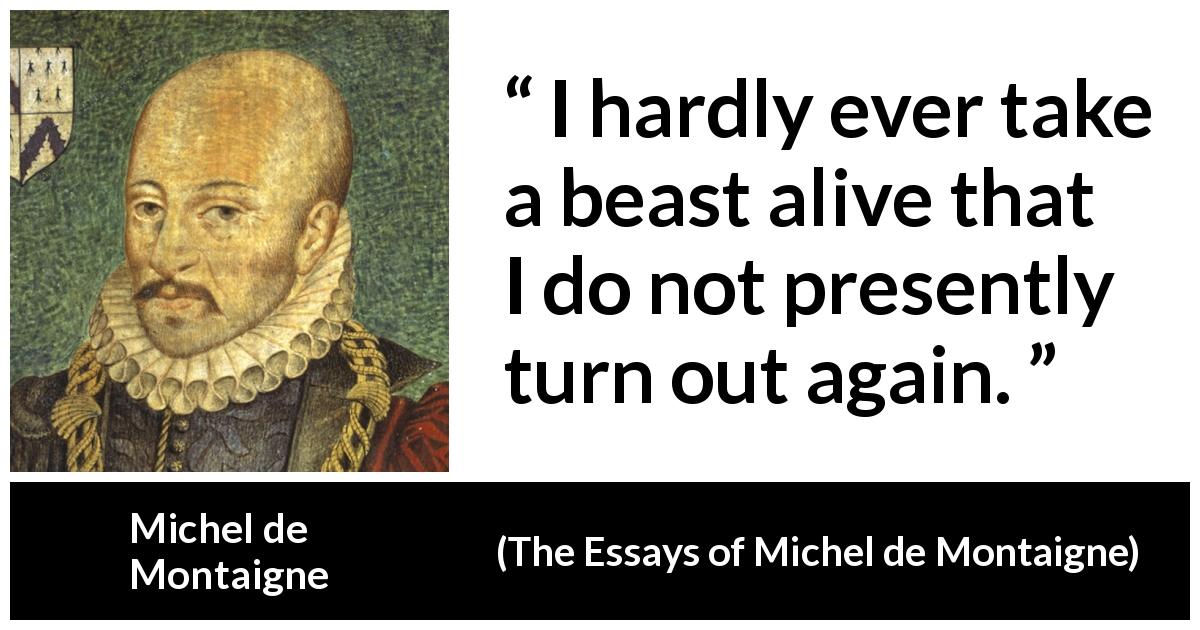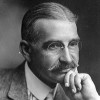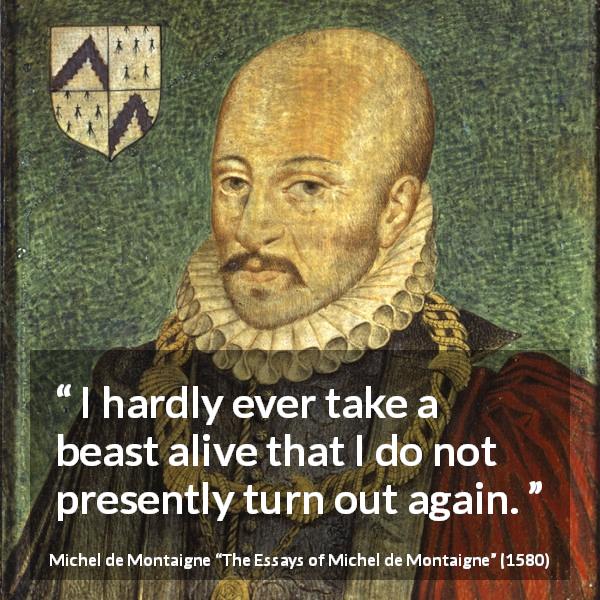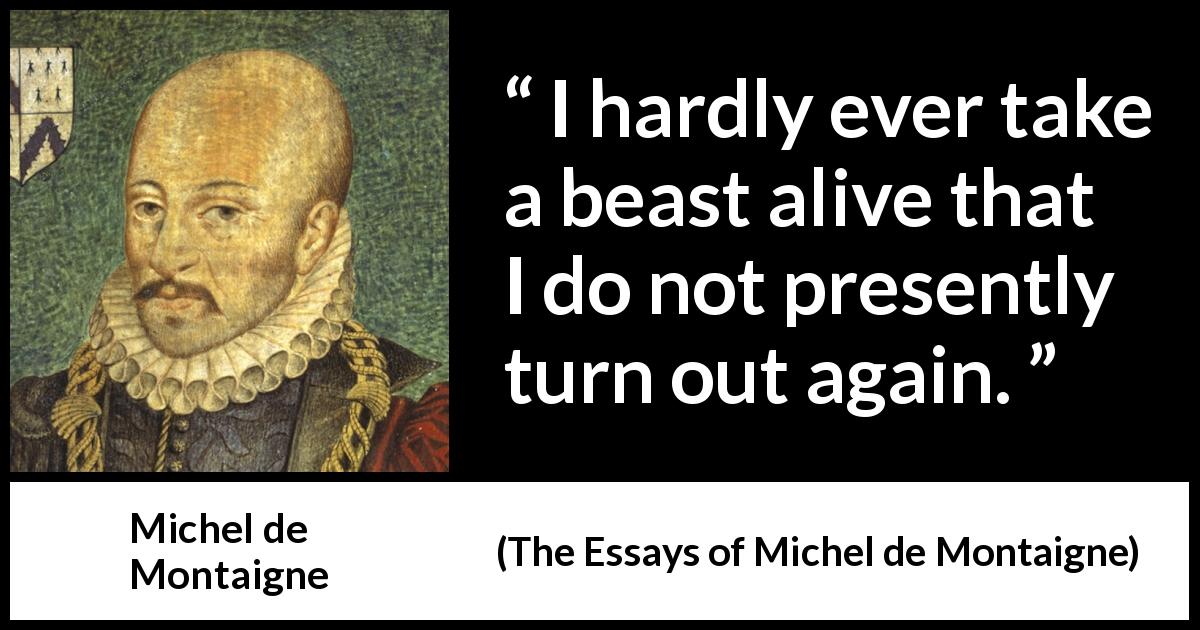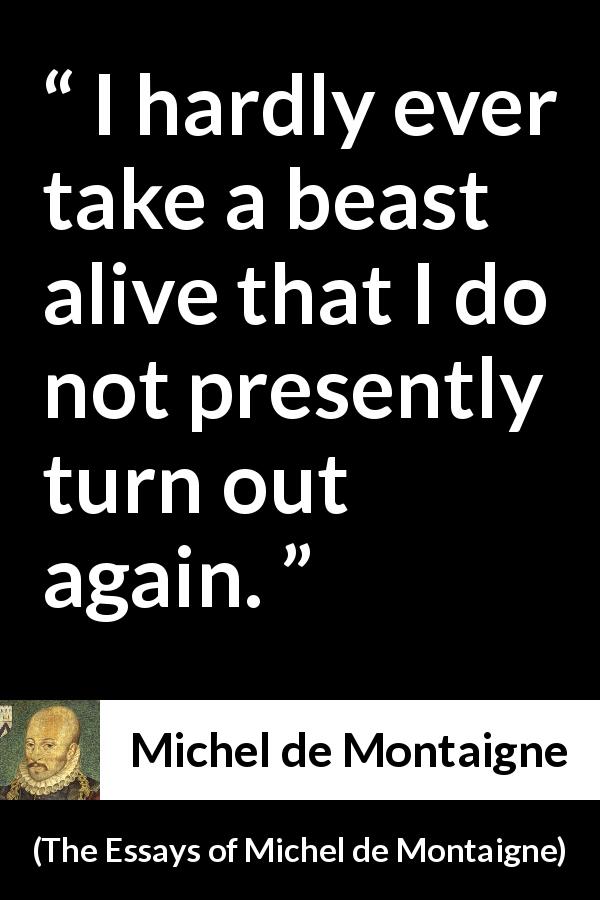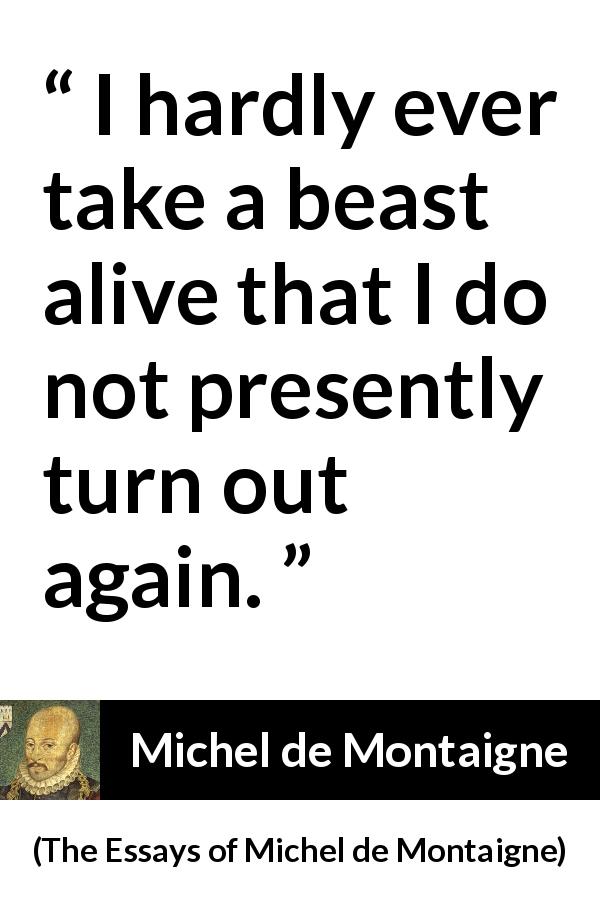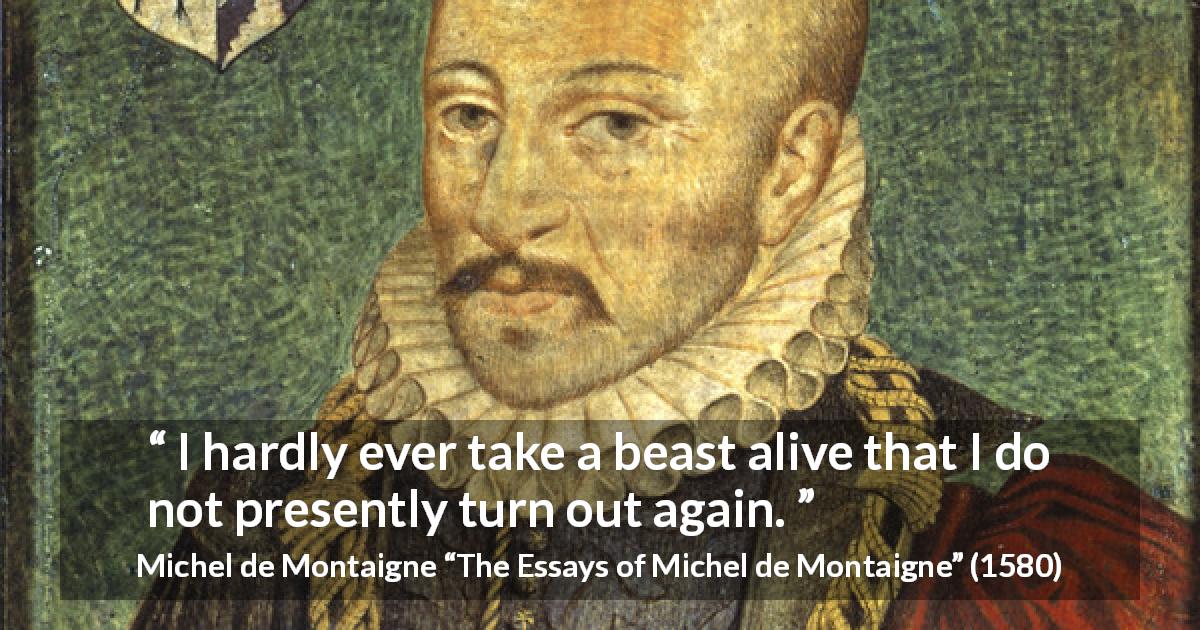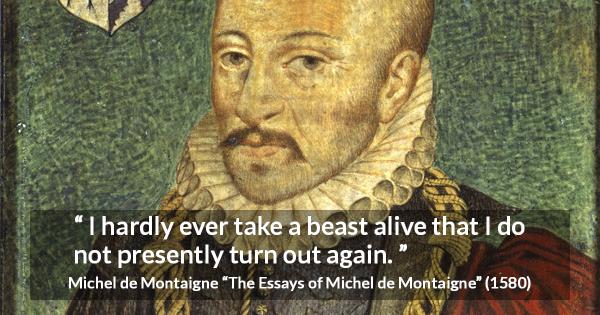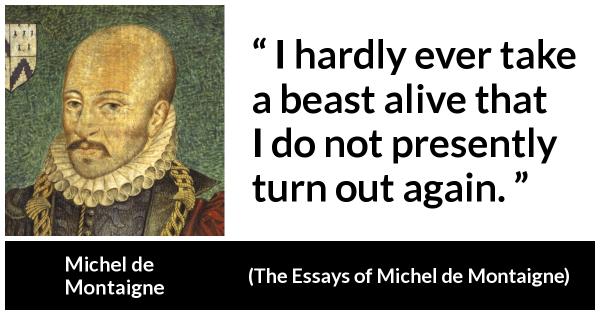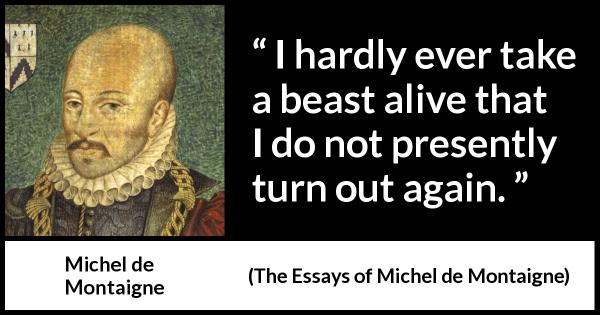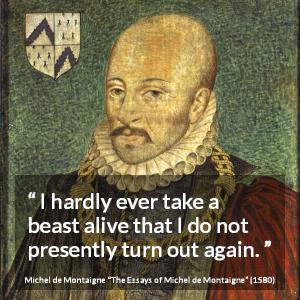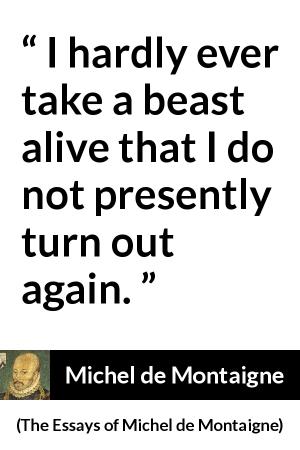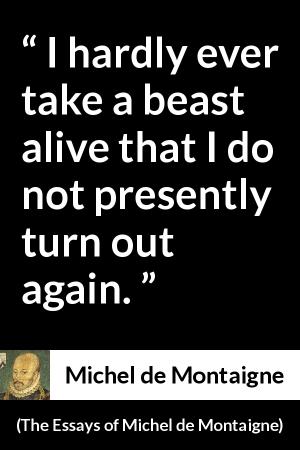“ I hardly ever take a beast alive that I do not presently turn out again. ”
Michel de Montaigne, The Essays of Michel de Montaigne (1580). copy citation
| Author | Michel de Montaigne |
|---|---|
| Source | The Essays of Michel de Montaigne |
| Topic | nature protection animals |
| Date | 1580 |
| Language | English |
| Reference | |
| Note | Translated by Charles Cotton |
| Weblink | http://www.gutenberg.org/files/3600/3600-h/3600-h.htm |
Context
“For my own part, I cannot without grief see so much as an innocent beast pursued and killed that has no defence, and from which we have received no offence at all; and that which frequently happens, that the stag we hunt, finding himself weak and out of breath, and seeing no other remedy, surrenders himself to us who pursue him, imploring mercy by his tears: «Questuque cruentus, Atque imploranti similis,» [«Who, bleeding, by his tears seems to crave mercy.» —AEnead, vii. 501.]
has ever been to me a very unpleasing sight; and I hardly ever take a beast alive that I do not presently turn out again. Pythagoras bought them of fishermen and fowlers to do the same:
«Primoque a caede ferarum, Incaluisse puto maculatum sanguine ferrum.» [«I think 'twas slaughter of wild beasts that first stained the steel of man with blood.»” source
has ever been to me a very unpleasing sight; and I hardly ever take a beast alive that I do not presently turn out again. Pythagoras bought them of fishermen and fowlers to do the same:
«Primoque a caede ferarum, Incaluisse puto maculatum sanguine ferrum.» [«I think 'twas slaughter of wild beasts that first stained the steel of man with blood.»” source
Original quote
